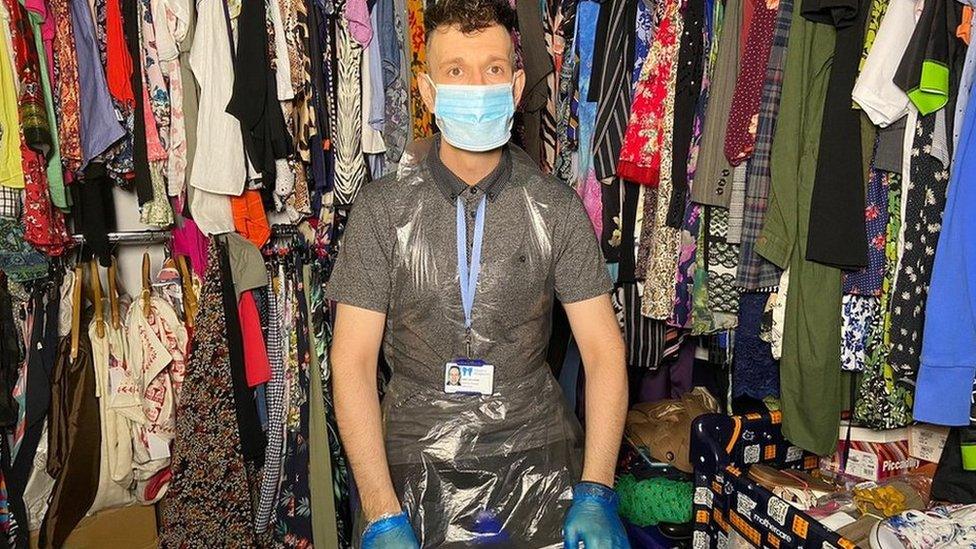Devon charity Hospiscare's donations include dirty potty
- Published
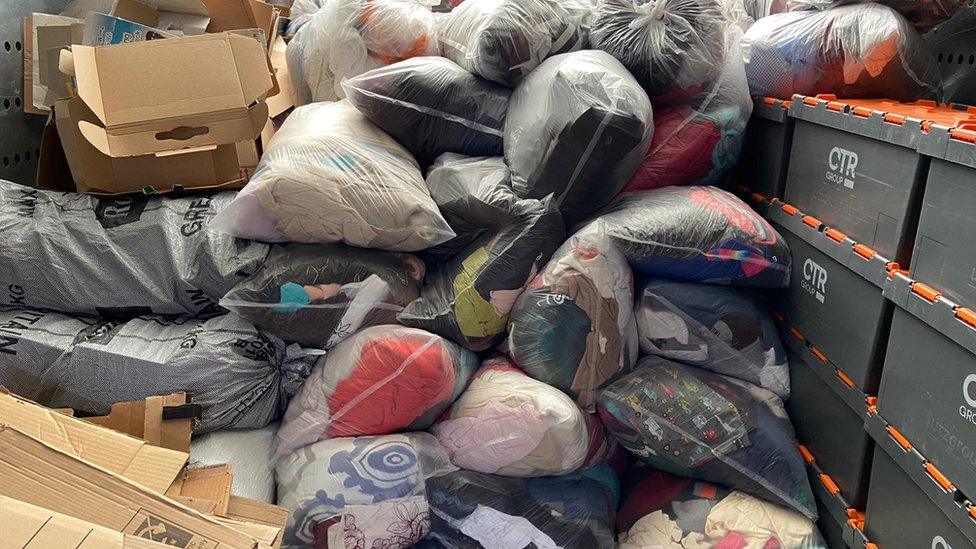
The charity said it was not able to sell 80% of the 16 tonnes of items donated in the two weeks from 29 June
A dirty potty, a scorched blanket and boots covered in cement - these were items among 16 tonnes of items apparently donated to a Devon charity.
Hospiscare, which supports people with life-limiting illnesses, says 80% of items donated in just two weeks, from 29 June, had not been suitable to sell.
Head of retail Helen Hutter said the volume of items had been "immense".
"We have been overwhelmed with the support - but it is a myth that we can take and recycle everything," she said.
"The volume is just immense so we have had to close for a couple of weeks just to get through our initial surge."
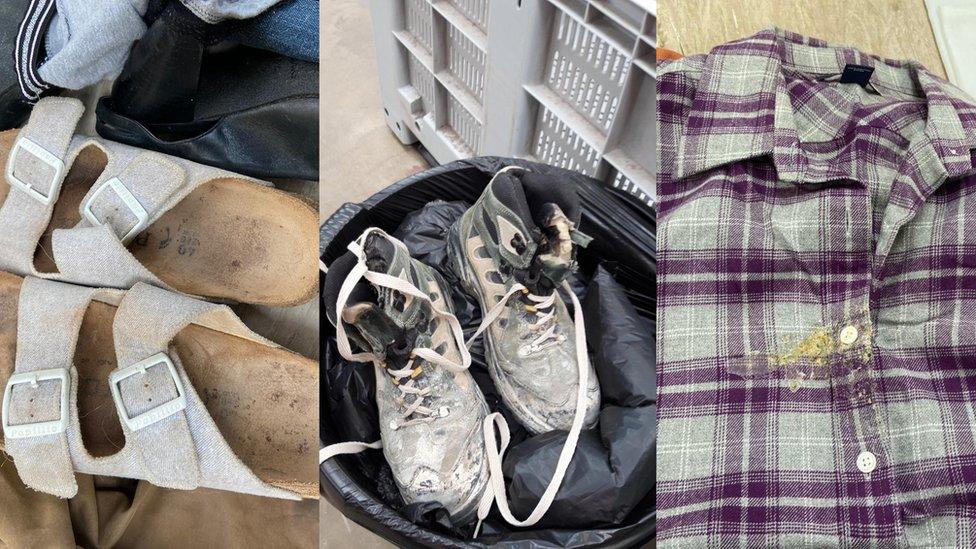
Items donated to the charity include boots covered in cement, shoes with dog hairs on them and stained clothing
The charity, which has 20 shops in Exeter, Mid and East Devon, has now stopped taking donations at its warehouse at Marsh Barton in Exeter.
It says of the 80% of items it could not sell it was able to recycle 35%, but the remaining 45% had to be disposed of, the cost of which had to be met by the charity.
Ms Hutter said they had seen a 40 to 50% increase in overall donations, which had to be quarantined for 72 hours before they could be sorted, but it was "a myth that we can take and recycle everything".
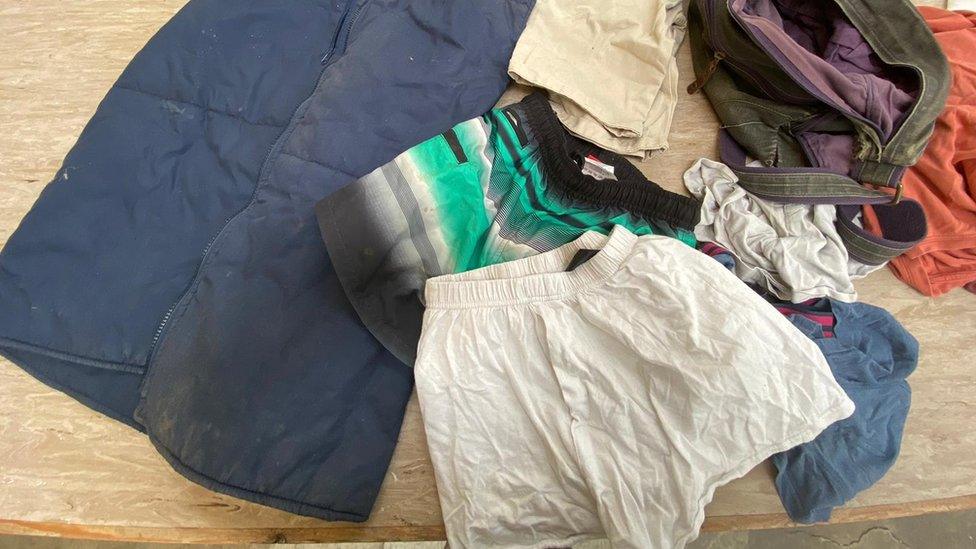
Helen Hutter, Hospiscare's head of retail, said donated items had to be of a certain quality for them to sell on
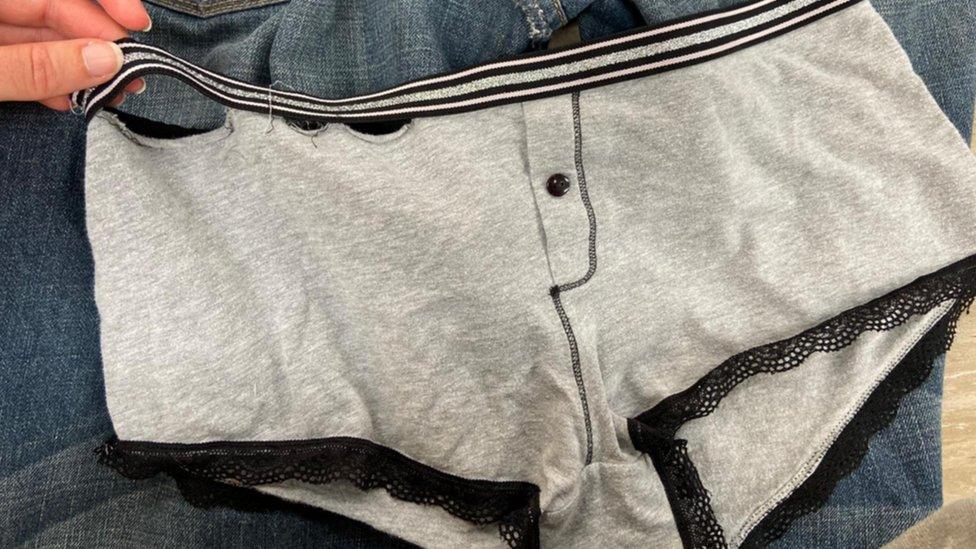
The charity is asking people to think "would I buy it?" before donating dirty or broken items
Ms Hutter said: "We do generate income from items that we cannot sell within our shops but we sell these on and they still have to be of a certain standard quality."
She said it could be "quite soul destroying, but we get some lovely gems as well".
She said in 2019-20 the charity spent £30,000 disposing of rubbish and £20,000 on recycling.
"Our message is to support us by asking the question 'would I buy it?', to help us reduce our cost," she added.
- Published28 May 2020
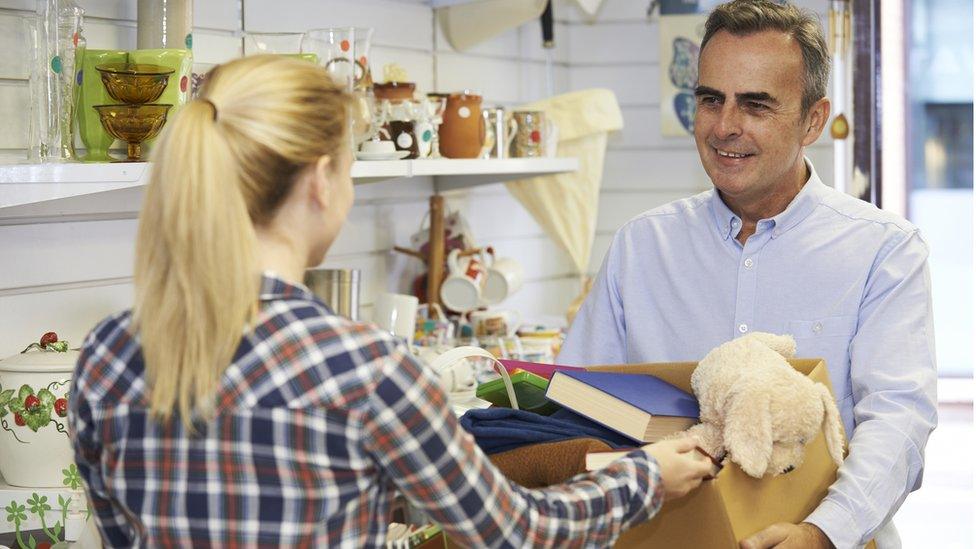
- Published15 June 2020
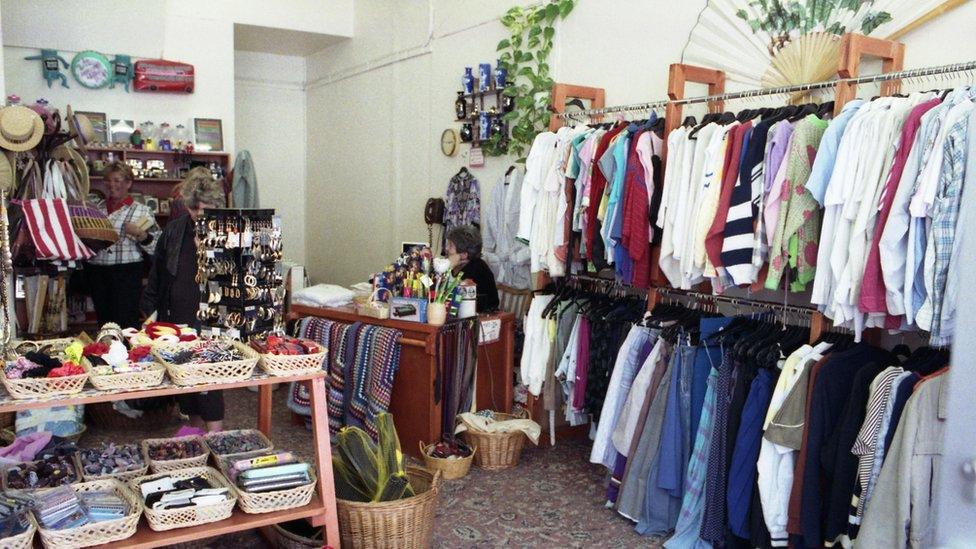
- Published18 June 2020
